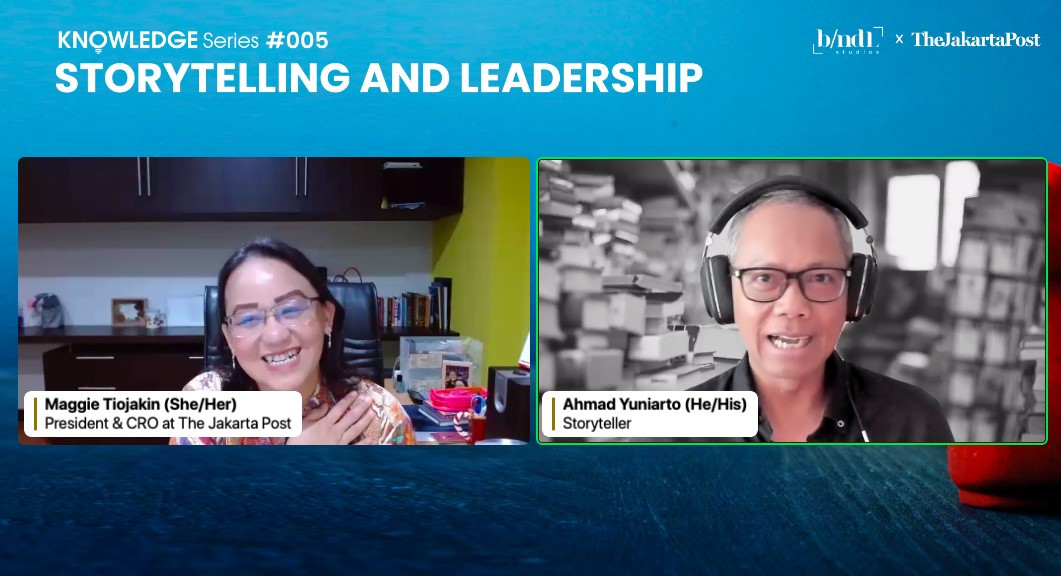Popular Reads
Top Results
Can't find what you're looking for?
View all search resultsPopular Reads
Top Results
Can't find what you're looking for?
View all search resultsAn honest conversation: How storytelling can make a positive impact on yourself and others
Change text size
Gift Premium Articles
to Anyone
L
ong associated with movies and books, storytelling is one of those things that can shape an audience’s perception. A good storyteller can immerse themselves and their listeners within a narrative that will ultimately determine their own opinion and response, for better or worse.
The question then becomes clear: How can you tell stories that can win friends and influence people?
This conundrum was answered at the fifth edition of the monthly invitation-only Knowledge Series webinar, which took the theme of “Storytelling and Leadership: How to Inspire and Influence your Team”.
Moderated by The Jakarta Post president and chief revenue officer Maggie Tiojakin, the webinar was held on March 14, and invited Ahmad Yuniarto to share his insights into storytelling in the context of leadership roles.
A self-described storyteller, Ahmad possesses extensive experience in the energy sector, formerly serving as president director at PT Pertamina Geothermal Energy, senior advisor at Shell Upstream Indonesia and the Indonesia Geothermal Association (INAGA-API).
Speaking of his own storytelling journey, Ahmad reminisced on the beginnings of his professional career, when he joined a company called Schlumberger as a fresh graduate. Working in a foreign country, he continued, was a struggle, recalling his first appraisal where his boss told him directly that he was not suitable for the company.
“I had two choices essentially; leave the company since I was deemed unsuitable anyway, or find a way to not only survive but also thrive. Much later when I reflected, what I did was tell a story to myself about how to make sense of that situation,” he said.
“What I did at the time was sort of enlarge my role, that [I was] not just representing myself, but also other worthy Indonesian candidates from other universities, so if [I] failed, [I] would set the wrong expectation for the company that other Indonesian candidates were as bad as [myself].”
When it comes to stories, Ahmad is of the opinion that stories and narratives are essential to make sense of the world. In that sense, he referred to a quote from German philosopher Martin Heidegger: “We are a conversation”.
“We can create impact, be meaningful to others if we have conversations with others. However, and I have experienced this myself, oftentimes we don’t need others because we will have the conversation with ourselves,” he said.
The story that you tell yourself, he explained, is one of the most potent stories you'll ever tell, as it will be used in controlling and shaping your own response toward the future, like a sort of self-fulfilling prophecy: If he had told himself that he wasn’t suitable and didn’t belong in Schlumberger, the only choice was to quit instead of continuing what would eventually become a two-decade long career in the company.
“Before we talk about the story we tell others, when we talk of leadership at a very fundamental level it has nothing to do with positions and structures. [...] The first act of leadership is leadership of yourself and how you govern yourself.”












